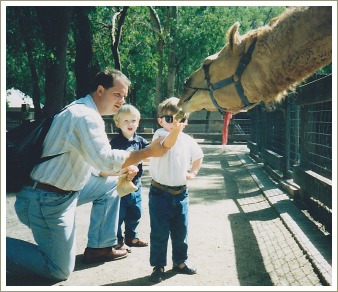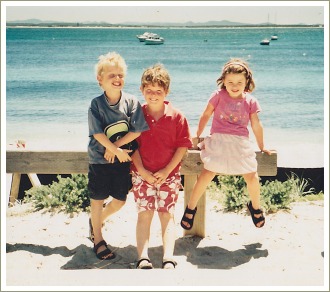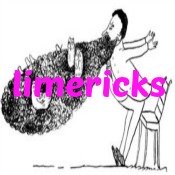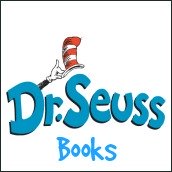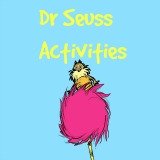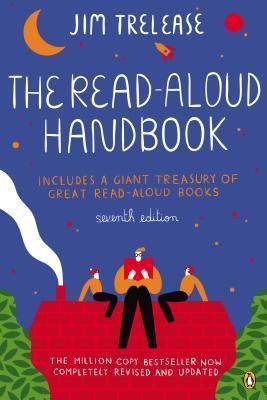You are here: home / phonological awareness / building background knowledge
Building Background Knowledge
Building background knowledge is one of the most important things a parent can help a young child to do.
This is because the extent of a child’s background knowledge on starting school is a strong predictor of how easily he or she will learn to read. It is also strongly linked to children's academic and social success at school. Many studies have confirmed these links so it's clear that helping young children build background knowledge is a really important thing for parents to do.
So what exactly is background knowledge?
Background knowledge is simply another term for general knowledge, the knowledge a person has in his head about the world when he or she sits down to read a book or some other kind of text.
With that in mind, let's have a look at why it's so important.
Why Is Background Knowledge Important?
There is strong evidence that children who start school with extensive background knowledge:
- learn to read naturally and easily because they know and understand more words and concepts;
- understand more of what the teacher is talking about;
- understand more of what they read in textbooks and novels;
This is because background knowledge provides a framework and a vocabulary to help children understand the information they're hearing or reading.
If this sounds a bit airy-fairy, here's an easy way to understand why background knowledge is important for reading:
Imagine you're given a how-to article about brain surgery to read. You know how to read but, unless you actually are a brain surgeon, you'll find this task difficult. You'll probably have to read the article slowly, sounding out some of the words and going back to read some parts over again. Even then, how much of the article are you likely to understand? Maybe a bit. Perhaps the odd word here and there. You're probably not going to understand much, though.
This is how it is for kids who are learning to read at school without much background knowledge. Without the vocabulary or expected level of knowledge about the world, they will find it hard to make sense of what the teacher is saying or of what they're reading.
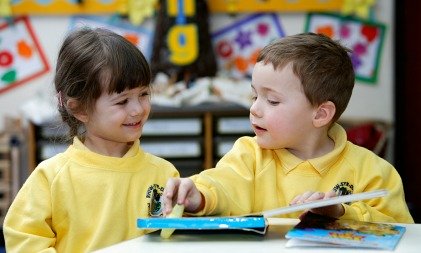
On the other hand, kids who have built up a store of background knowledge about the world, both through a variety of personal experiences and by being read to, get more out of their lessons at school. They tend to grasp new concepts quickly and therefore experience greater success at school. This in turn makes them more motivated to learn so that they tend to regard school as a positive, fun place to be.
How Parents Help Build Background Knowledge
Building background knowledge may sound complicated but it really isn’t. In fact, you're helping to build your child's background knowledge every day from the earliest days of your baby’s life when you do these things:
- speak to him;
- play with him;
- read to her;
- take her out and about with you;
As a parent, I like to think that part of our role is to show our children the world and help them to interpret it. We can do this by noticing what our child is seeing and being available to answer questions or to offer explanations.
Remember that a great deal of what your child sees every day is a mystery, even if he is very clever. If you're conscious of what's going on when you're with your kids, you'll notice lots of little ways to build on their knowledge of the world around them.
For children aged from about three or four years, great TV programs like the Australian show Play School can also help. Obviously too much TV is not a good thing but Play School is carefully structured to introduce kids to things they might not be able to experience in real life.
An important part of building background knowledge is the vocabulary associated with different experiences. Talking to your child about the things he sees and does every day helps him acquire language skills and the more experiences he has, the wider his vocabulary will be.
A Story About Building Background Knowledge
When my daughter was about eight, we were paying for a few items at the supermarket check-out, watching as the check-out operator took our money, put it in the drawer and then give us change. As we left, my daughter asked me a question. I don't even remember the question but I do remember that I realised from the way she worded it that she thought the check-out operator kept the money we'd given her for herself!
It was a pretty logical thing to assume, really. She knew the staff at supermarkets get paid for their work and she knew we had to pay for the items we bought so she just put two and two together ...
The thing is, my daughter's a bright kid and I'd just assumed that she understood how a supermarket works - a silly assumption on my part! So take the time to ask your child questions and to chat about the things you see every day. In this way you'll be helping him or her to understand a little bit more about the world in which we live.
Building Background Knowledge Through Reading
Reading to babies and young children builds background knowledge because it introduces them to language and experiences outside their immediate environment. In fact, by reading to your child from his earliest days, you're helping to build the three foundations for learning to read:
- background knowledge;
- a wide, rich vocabulary;
- phonological awareness;
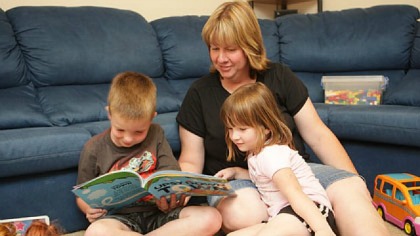
The great thing about this learning is that it’s completely unconscious. Your child isn’t aware that he’s developing his language skills or learning about the world around him – he’s just enjoying the story!
Reading is also important because the language contained in fairy tales, stories, nursery rhymes and poems is richer and more diverse than the language of everyday life. The language is often old-fashioned and may need explaining, even if your child doesn't ask about it. This is a great opportunity to talk about the story, as well as any unfamiliar words.
